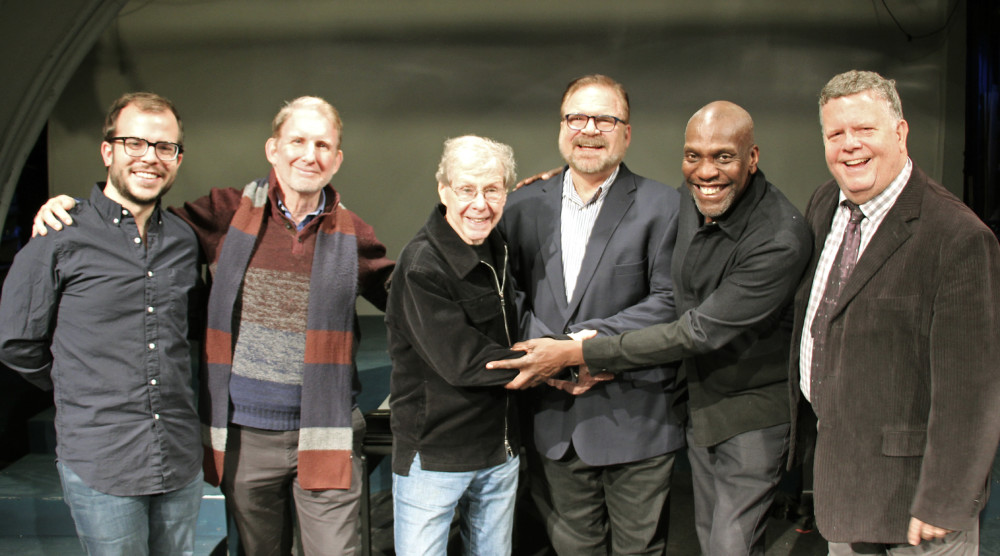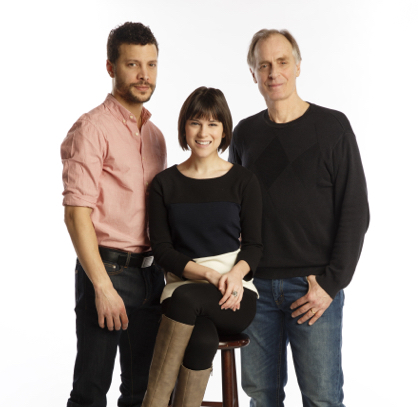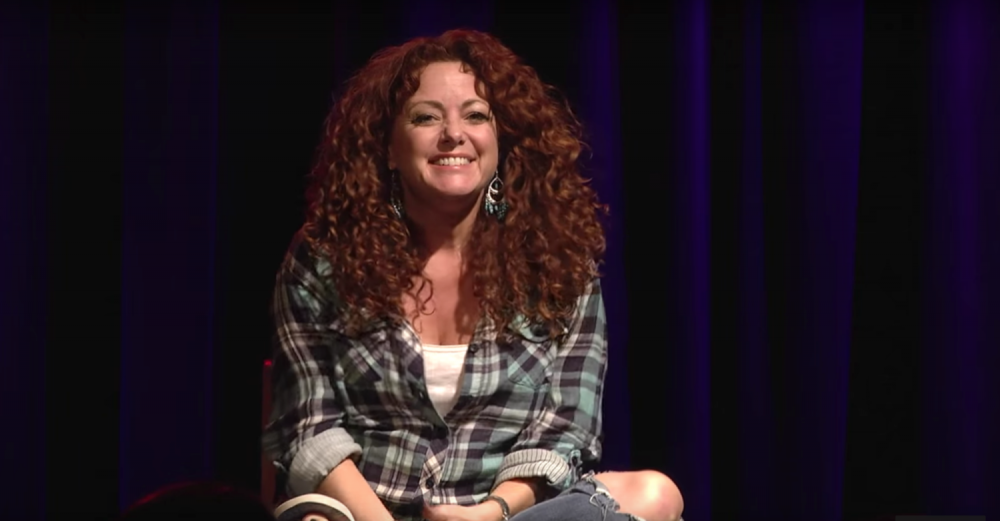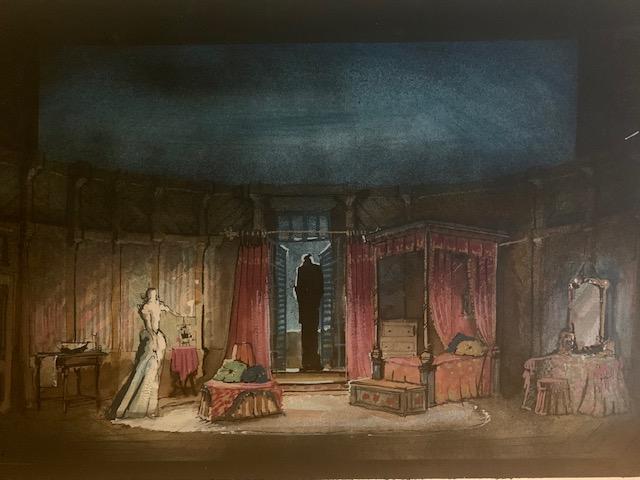By Brian Scott Lipton
There can be no argument that Maury Yeston belongs in the pantheon of great musical theater composers. The 74-year-old New Jersey native has won Tony Awards for his scores of Nine and Titanic, as well as thrilled audiences with such shows as Phantom, Death Takes a Holiday and Grand Hotel. Still, Yeston’s songs, some of which are virtually unknown, are remarkably diverse in their styles – as audiences will discover starting on November 26 when the York Theatre Company presents an updated version of the revue, Anything Can Happen in the Theater: The Musical World of Maury Yeston, which was co-conceived and directed by Forbidden Broadway genius Gerard Alessandrini.
Theater Pizzazz recently spoke to Yeston about this show, the enduring popularity of his music, and the most surprising thing that ever happened to him.
CAN YOU DESCRIBE WHAT IT’S BEEN LIKE TO REVISIT YOUR 40-PLUS-YEAR CAREER?
MY – It may seem to others like a vast body of work from the past, but I feel that it’s alive all the time. My work is done all the time everywhere! For example, right now there are versions of Titanic and Nine in Europe and one of Phantom in Tokyo. And I just received a request for December Songs in Poland. Plus, there are over a dozen productions of my shows in the U.S. right now, especially in high school and colleges. I feel very fortunate that my work remains current.
TO WHAT DO YOU ATTRIBUTE THIS ENDURING SUCCESS?
MY – I think it may be because some of the topics I wrote about ended up being timeless and topical. Even when I was young, I was impressed by structure of classical music, and just as Bach and Mozart never get old-fashioned, I think my songs still have that feel of great musical construction. I feel very blessed that’s how this all worked out.
HOW DID YOU GO ABOUT PICKING WHICH SONGS TO PUT IN THIS REVUE?
MY – The show was Gerard’s idea; we have known each other since the 1970s. He was aware of almost all of my songs, not just from theater but pop songs and country songs and songs people wouldn’t know, and he made a list of the ones that he liked and that he wanted to put in the show. And then I sent him recordings of a few others that I liked that I thought he might not know. And we finally just put it all together and did it at the Triad back in 2017 and we got wonderful reviews.
HOW DID IT END UP NOW AT THE YORK?
MY – I remember seeing Jim Morgan, the artistic director of the York, when we did it at the Triad and he loved it. Then he called me about a year ago and asked if we would do it for the York’s 50th anniversary season. I couldn’t think of anything more wonderful. So then Gerard and I got together and added about five songs – and we now also have costumes, great lighting and, above all, a truly wonderful choreographer, Gerry McIntyre, who can really interpret lyrics with movement. And while we’re doing it here with one piano; there is going to be a cast album, but it will be with eight musicians, so there will be fuller orchestrations.
SO MANY OF YOUR SONGS WORK SO WELL IN CONCERTS, CABARET ACTS OR ON RECORDINGS. IS THAT SOMETHING YOU THINK ABOUT WHEN WRITING?
MY – A well-written, well-constructed song in theater starts in one place and ends in another. The really good ones tell a great story, so it’s not surprising those songs stand on their own – especially the ballads. That may be why you hear so many people sing something like “Unusual Way” (from Nine). But I don’t necessarily think about where it will be recorded or performed when I’m writing.
HAS THE ENDURING POPULARITY OF ANY OTHER PARTICULAR SONG SURPRISED YOU?
MY – Yes! I knew “New Words” would touch people, but I never expected it to get the reception it has. I played it once for Alan Jay Lerner and he said to me, “that’s such a beautiful song.” And then when Stephen Sondheim said it was one of the 50 songs that he wished he’d written, I was blown away. After all, it’s very specific in context. I wrote it when my first son was a little baby and we would put him to bed when it was still light out, since it was Daylights Savings Time, and I realized he never knew any night words like “moon.” But to have it sung so well by so many people over the years, especially the great Andrea Marcovicci, is not what I ever imagined.
THERE’S BEEN A LOT OF TALK IN THE PAST FEW YEARS ABOUT A BROADWAY REVIVAL OF TITANIC. IS THERE ANY UPDATE?
MY – It’s absolutely happening; there are producers, a cast, even a set. The problem is Broadway is like an airport when there are more planes than runways, so we’re still looking for the right place to land. It is a truism in show business that revivals don’t always run as long as new musicals, so sometimes we might lose a theater we want to a new show. Honestly, even I would love to see a new show of mine on Broadway rather than any revival. Still, I believe in the next couple of years, we’ll get a theater.
FINALLY, THIS REVUE IS CALLED ANYTHING CAN HAPPEN IN THE THEATER. WHAT’S THE MOST SURPRISING THING THAT HAPPENED TO YOU?
MY – The most surprising thing for me is that I won the Tony Award for Nine. I was nominated against Stephen Sondheim, Andrew Lloyd Webber and Tim Rice, and Henry Krieger. And I was this associate professor from Yale who no one had heard of and who had never been professionally produced. Everyone told me I wouldn’t get a Tony the first time out. I am still very grateful for that award and for everything that’s happened since. I feel I was put on the earth for my music. When I hear someone on the street humming one of the tunes I wrote – and that does happen — that’s what makes life all worth it.
Photos Courtesy of York Theatre Company























